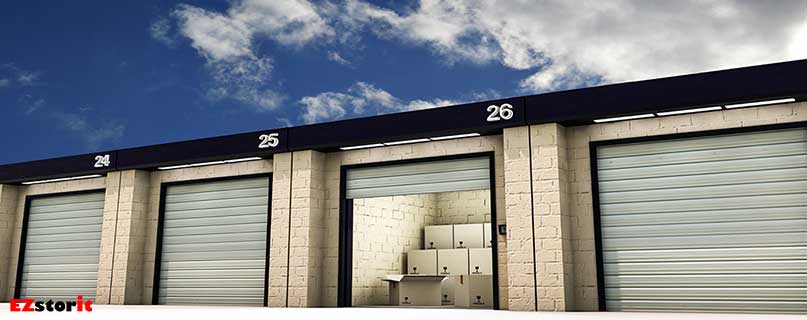Apr
18
How to Protect Your Musical Instruments in Storage
18

As a musician, your instruments are your prized possessions, which is why you need to know how to keep them in tip top shape when they are not in use and kept in storage. It doesn't matter if you have brass, woodwind or string instruments, they all need special attention and care to maintain their integrity.
If it comes time to relocate and you have insufficient space for your gear, then you're going to need to rent space from a nearby storage unit. However, you can’t just turn to the cheapest locker to keep your most valuable possessions, you’ll need to find a rental unit that has precautions in place to protect your instruments.
Your musical equipment is very valuable, some costing an arm and a leg to repair or replace. Don't let this become a problem you face by making the wrong choice in where to store your instruments. The following tips can be used to keep your instruments in good condition.
Be Mindful of Your Electronics
Not all instruments are physical - some are virtually installed on your computer. There are also other digital interfaces, midi controllers and the like that need to be treated as any other electronic. You need to dust these out using an air compressor that's designed for electronics, wipe the exteriors clean and don't forget to get in between the keys and buttons. They should then be placed inside of a plastic cover to keep dust from getting back inside.
Clean Your Instruments First
The same should be done for any actual instruments you have, whether they be brass, woodwind or string. Use a damp cloth to wipe off any dirt and dust residue. They will also need to be conditioned before being placed in storage. Avoid using alcohol or oil-based polishes on your wooden instruments as this could potentially damage them. Instead, you can use paste and resin to wax and protect the finish. All of the components of your instrument should be disassembled, such as reeds, mouthpieces, straps and mutes. If you have violins, cellos and guitars, make sure to relax the strings.
Place Instruments in a Case
The best way to keep dust off your instruments is to put them inside of their respective cases. It's best to use the cases designed for them, such as the ones they came with to provide added protection. If you no longer have this case, you can buy another online or from a local music store. Make sure that whichever case you end up using is free of cracks and holes and there should also be no signs of powdering or fraying.
If you have no other choice but to use a less-than-ideal case, then use a buffered acid-free paper to line your case and prevent your instrument from becoming damaged by humidity during the warmer months (if your storage isn't in a temperature-controlled facility).
Cover Your Piano
Pianos are grand instruments and should be given special attention when storing. You can use a furniture pad to cover your piano and stop dust particles from seeping in and prevent accidental bumps and scrapes. Make sure to cover the legs in bubble wrap as well. Professional movers should always be used when transporting your piano to and from a storage unit.
Don't Place Equipment On the Floor
You don't want to place any of your instruments or electronic equipment directly on the floor. These should instead be placed up onto shelves and away from any air vents and doors. You should also place your flash drives, DVD, CDs and other fragile gear inside of weatherproof containers.
Caring for Brass Instruments
As with any instrument, there are special needs brass has to maintain its good condition. Your brass equipment is susceptible to becoming dull over time. If you're going to stow away your brass instruments for a long time, then make sure to thoroughly polish them with a solution designed to clean and condition the surface. Use a white cloth to polish the brass, then disassemble all of the components, such as the mouthpieces and reeds. There's a special brush required to clean inside of the tubes of brass horns, but be careful when cleaning the keys, making sure to get beneath and in between them. Again, use the original case to store your brass equipment.
Your music equipment should be properly taken care of before you place them into storage. Try to visit your storage unit regularly to ensure your instruments are fairing well.






